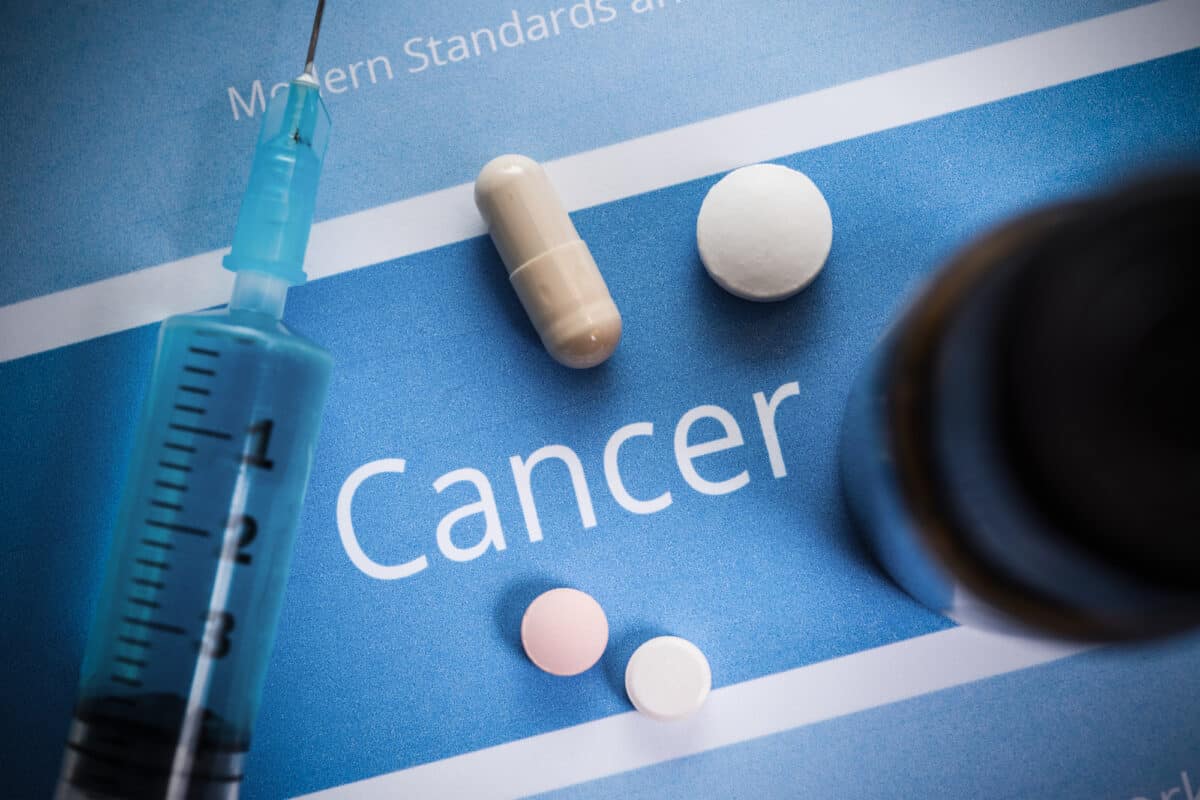Thyrotropin-dependent well-differentiated thyroid cancer (TD-DTC) is a type of thyroid cancer that requires thyroid-stimulating hormone (TSH) to grow. According to the NIH (National Library of Medicine), DTC develops in 7-15% of individuals undergoing thyroid surgery. In the United States, roughly 63,000 new instances of DTC were diagnosed in 2014, compared to just 31,200 new cases in 2009.
TD-DTC accounts for 90% of all thyroid cancers, and its incidence has increased in recent years. While the prognosis for this cancer is generally favorable, treatment options for recurrent or metastatic disease are limited.
After surgery, Synthroid is a medication used to maintain the thyroid hormone level in the body. It is a popular medication recommended by physicians. This article will discuss recent advances in research for TD-DTC and their potential implications for treatment and also how you will buy Synthroid online from a trusted source.
Understanding Thyrotropin-Dependent Well-Differentiated Thyroid Cancer
Before delving into recent advances in TD-DTC research, it’s essential to understand the disease itself. TD-DTC arises from follicular cells in the thyroid gland and is characterized by gene mutations that regulate the TSH signaling pathway, such as the thyroid hormone receptor beta (THRB) gene. These mutations result in uncontrolled TSH-mediated growth of thyroid cancer cells.
While TD-DTC is generally considered indolent, which grows slowly and has a low mortality risk, it recurs or metastasizes in up to 20% of cases. Treatment options for recurrent or metastatic TD-DTC are limited, and there is a need for new therapeutic approaches.
Which medication is best for Thyrotropin-Dependent Thyroid Cancer?
After surgery and radioactive iodine treatment, patients with Thyrotropin-Dependent Thyroid Cancer need to maintain a specific level of thyroid hormones to suppress the growth of any remaining thyroid cells or cancer cells. This is where Synthroid comes in.
Synthroid is a synthetic form of thyroid hormone, and it can be used to replace the natural thyroid hormones that are no longer produced by the thyroid gland after surgery. By taking Synthroid, patients with Thyrotropin-Dependent Thyroid Cancer can maintain the necessary level of thyroid hormones to suppress the growth of any remaining cancer cells and prevent cancer from returning.
It’s essential to note that Synthroid alone is not a treatment for Thyrotropin-Dependent Thyroid Cancer. It’s used as part of a comprehensive treatment plan that includes surgery, radioactive iodine therapy, and ongoing monitoring by a healthcare professional.
Recent Advances in Research for TD-DTC
In recent years, researchers have made significant strides in understanding the underlying molecular mechanisms of TD-DTC and identifying potential therapeutic targets. Here are some of the most notable recent advances in thyroid cancer research:
Targeting the MAPK pathway
One of the most promising therapeutic targets in TD-DTC is the mitogen-activated protein kinase (MAPK) pathway. The MAPK pathway regulates cell growth and differentiation and is often dysregulated in cancer. In thyroid cancer, mutations in genes such as BRAF and RAS result in hyperactivation of the MAPK pathway.
Recent studies have shown that targeting the MAPK pathway with drugs such as vemurafenib and dabrafenib can lead to significant clinical responses in patients with BRAF-mutated TD-DTC. These drugs are already approved for treating melanoma and non-small cell lung cancer and are now being studied in TD-DTC.
Immunotherapy
Immunotherapy has revolutionized the treatment of several types of cancer, including melanoma and lung cancer. Recent studies have shown that immunotherapy may also be effective in treating TD-DTC.
One study found that treatment with pembrolizumab, an immune checkpoint inhibitor, resulted in a 44% overall response rate in patients with advanced thyroid cancer, including TD-DTC. Another study found that combination therapy with pembrolizumab and lenvatinib, a tyrosine kinase inhibitor, led to a 73% overall response rate in patients with advanced thyroid cancer.
Targeting the TSH receptor
Because TD-DTC depends on TSH for growth, targeting the TSH receptor has long been considered a potential therapeutic strategy. However, previous attempts to develop drugs targeting the TSH receptor have been unsuccessful due to the receptor’s complex structure.
Recent advances in molecular modeling and drug design have led to the development of new drugs targeting the TSH receptor, such as MEDI9197 and MK-6482. These drugs have shown promising results in preclinical studies and are now being tested in clinical trials.
Liquid biopsies
Liquid biopsies are a non-invasive method of detecting cancer by analyzing circulating tumor DNA (ctDNA) and other biomarkers in a patient’s blood. Liquid biopsies can revolutionize cancer diagnosis and monitoring by allowing doctors to detect cancer earlier and monitor its progression more closely.
Recent studies have shown that liquid biopsies are also helpful in monitoring TD-DTC. One study found that ctDNA levels in the blood were significantly higher in patients with recurrent cancer than those without recurrence. Another study found that ctDNA levels could predict the response to treatment with lenvatinib in patients with advanced thyroid cancer, including TD-DTC.
Liquid biopsies could also help detect resistance to therapy early on. One study found that ctDNA analysis could detect resistance to BRAF inhibitors in patients with BRAF-mutated melanoma before radiographic progression was evident.
Implications for Treatment
The recent advances in research for TD-DTC have significant implications for treatment. Here are some potential ways in which these advances could change the way thyroid cancer is treated:
Personalized therapy
As we learn more about the molecular mechanisms underlying TD-DTC, we will be able to develop more personalized treatment approaches. For example, patients with BRAF-mutated thyroid cancer benefit from targeted therapy with BRAF inhibitors, while patients with RAS mutations may benefit from drugs targeting the MAPK pathway.
Combination therapy
Combination therapy with multiple drugs targeting different pathways may be more effective than single-agent therapy. For example, the combination of pembrolizumab and lenvatinib has shown promising results in advanced thyroid cancer, including TD-DTC.
Liquid biopsies for monitoring
Liquid biopsies could be a valuable tool for monitoring TD-DTC, especially in patients with recurrent or metastatic disease. By analyzing ctDNA levels in the blood, doctors could detect recurrence or progression earlier and adjust treatment accordingly.
Early detection
Finally, liquid biopsies could also be helpful for the early detection of TD-DTC. By analyzing ctDNA and other biomarkers in the blood, doctors could detect thyroid cancer at an earlier stage when treatment is more likely to be effective.
Where Should You Buy Synthroid Online?
If you want to buy Synthroid online, do it from a Canadian pharmacy, as they are regulated by the Canadian government. Even the prices of pharmaceuticals are administered by the government of Canada, which does not happen in America at all.
Every genuine pharmacy in Canada is verified and accredited by a governmental organization, for example, CIPA (Canadian International Pharmacy Association). That is what makes them better and more trustworthy than American pharmacies. There are many best canadian online pharmacy you can buy your synthroid from, such as Polar Bear Meds.
Conclusion
In conclusion, recent advances in research for TD-DTC have significant implications for treatment. Patients with Thyrotropin-Dependent Thyroid Cancer who use Synthroid will be able to maintain the necessary number of thyroid hormones to inhibit the development of any residual cancer cells and prevent cancer from returning. To buy Synthroid online, you need to find a reliable pharmacy such as Polar Bear Meds.
They provide reliable and best services across America. They directly ship refrigerated and non-refrigerated items at significantly lower prices to your doorsteps! As we continue to learn more about the molecular mechanisms underlying TD-DTC, we will be able to develop more personalized treatment approaches and improve patient outcomes.
This is a sponsored post
Digital Health Buzz!
Digital Health Buzz! aims to be the destination of choice when it comes to what’s happening in the digital health world. We are not about news and views, but informative articles and thoughts to apply in your business.


